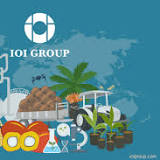Vietnam reports its first human infection from H9 avian flu virus


New research conducted in seven sub-Saharan African counties highlights the health and financial impact of inadequate water, sanitation, and hygiene (WASH) in healthcare facilities.
In a report published late last week, non-governmental organization WaterAid estimated that inadequate WASH in healthcare facilities in Ethiopia, Ghana, Malawi, Mali, Nigeria, Uganda, and Zambia contributed to 2.6 billion healthcare-associated infections (HCAIs) and 277,160 excess deaths in 2022. At least 50% of the HCAIs are believed to have been caused by antimicrobial-resistant (AMR) bacteria.
The economic costs of these infections is estimated to range from 2.5% to 10.9% of the healthcare budgets in the seven countries, while lost wages and productivity due to infections accounted for 0.4% to 2.9% of the countries' gross domestic product.
Poor WASH paves way for healthcare-related infections
The report notes that globally, nearly 4 million people—predominantly those living in low- and middle-income countries (LMICs)—lack basic hygiene services at their healthcare facility, and one in five lack basic water services. Inadequate WASH at healthcare facilities in LMICs contributes to a rate of HCAIs that is more than twice that of high-income countries (15.5% vs 7.6%).
"The major transmission pathway for HCAIs is lack of cleanliness and hygiene measures provided during the delivery of healthcare," the report states. "Beyond the health impacts, poor WASH in HCF [healthcare facilities] has additional negative consequences as it relates to other aspects of quality care, including patient satisfaction, dignified and respectful care, future healthcare seeking behaviours and healthcare worker morale, motivation and retention, all of which ultimately impact health outcomes."
WaterAid says the problem is likely to get worse as AMR rates rise, and argues that the less than US$1 per capita needed to provide basic wash services at healthcare facilities in these countries would be covered by savings from a reduction in the medical costs associated with HAIs. The group calls on national governments to develop a dedicated budget line for WASH in healthcare facilities and urges donors, G7 countries, and multilateral financing institutions to prioritize WASH when working with national governments in LMICs.


 Malaysia
Malaysia Argentina
Argentina  Australia
Australia  Austria
Austria  Brazil
Brazil  Canada
Canada  Germany
Germany  Ireland
Ireland  Italy
Italy  Mexico
Mexico  New Zealand
New Zealand  Poland
Poland  South Africa
South Africa  United Kingdom
United Kingdom  United States
United States 






















